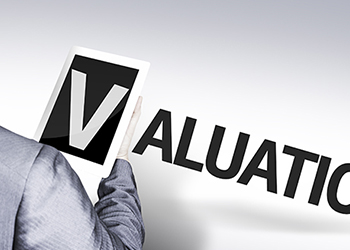Roberto Finance offers experienced services in
Welcome to Roberto Finance, a boutique mortgage broker based in the beautiful city of Melbourne. At Roberto Finance we only ever have one priority; ensuring you end up with the rates on home loans, mortgage loans and in mortgage refinancing for your situation. With no allegiance to anybody but our clients, you are always put first in every situation. We are based in Point Cook and service all major suburbs of Melbourne including Werribee, Point Cook, Williams Landing and Laverton.
As experienced finance professionals and mortgage brokers, we treat you as an individual at Roberto Finance —not just another number. Whether you’re buying your first or second home, investing in a property, require business finance, mortgage refinancing, or buying a car, we’re ready to help. We custom tailor a unique and personal approach specifically for you and your needs. We’re proud of our attention to detail and always aim to exceed your expectations. For finance services with a personal touch, contact us today.
We have a fast and easy application process

Read More
step 1
Read More
step 2
Read More
step 3
Read More
step 4
Read More
step 5
Read More
step 6
Read More
step 7
Read More
step 8This step-by-step Guide has been designed to help you understand the process involved in not only buying property but also when and how to apply for your finance
When buying a property, there's a critical stage that happens after you sign the contract called the cooling off period.
This stage starts on the same day you received a copy of the contract you and the seller have signed. This cooling off period is usually three business days long - Sundays and public holidays not included. If you change your mind about buying a property during this time, you can cancel the sale.
You should be aware, though, that cancellation of the contract incurs a penalty equivalent to 0.25% of the total selling price of the property. So if the property sells at $500,000, the penalty will be around $1,250. As the seller, on the other hand, once the contract is terminated within the cooling off period, you must give back the deposit within 14 days after the cancellation with the penalty already deducted.
The rules regarding cooling off periods can vary between states and territories. Some states might not even have a cooling off period.
What you need to know
Mortgage Insurance is only necessary if you have less than 20% deposit or insufficient equity in an existing property.
What is Lenders Mortgage Insurance?Most lending institutions require borrowers to contribute a 20% deposit before they will agree to provide a loan. By using LMI, lenders are able to pass on the risk of a smaller deposit to a mortgage insurer. LMI protects lenders against a loss should a borrower default on their home loan. If the security property is sold as a result of the default, the net proceeds of the sale may not always cover the full balance outstanding on the loan. Should this be the case, the lender is entitled to make an insurance claim to the Mortgage Insurer for the reimbursement of any shortfall, calculated in accordance with the terms of the insurance policy. It's a once off premium paid by the borrower and in some cases can be capitalised within the loan.
Insurance RequirementsWith the new liabilities it is important to consider or review your insurance requirements to ensure you are appropriately covered. Types of insurance you should consider include:
This is a government cost that is usually the biggest expense outside the property purchase price. Stamp duty varies between the states. www.stampdutycalculator.com.au
Loan setup up costsThis includes establishment fees and will vary pending on the lender and the loan product chosen. You may also require Lender's Mortgage Insurance (LMI) depending on your deposit size
Conveyancing CostsConveyancing is the process of which a property's ownership is transferred from the current owner (the vendor) to the buyer. A conveyancer specialises in this field. Either a conveyancer or solicitor will review your Contract of Sale and ensure appropriate checks are conducted with local government agencies.
Inspection CostsIt is recommended that prior to purchasing, you hire professionals to inspect the property for structural defects, concerns, pest infestations and anything that could potentially cause damage to a property.
Always ask your Mortgage Professional about any thing you are unsure of.